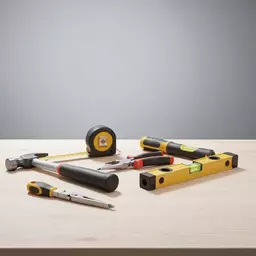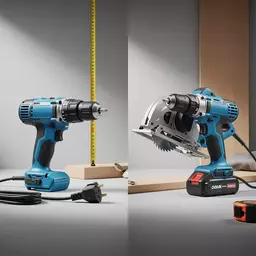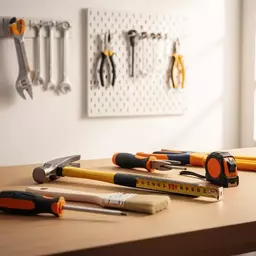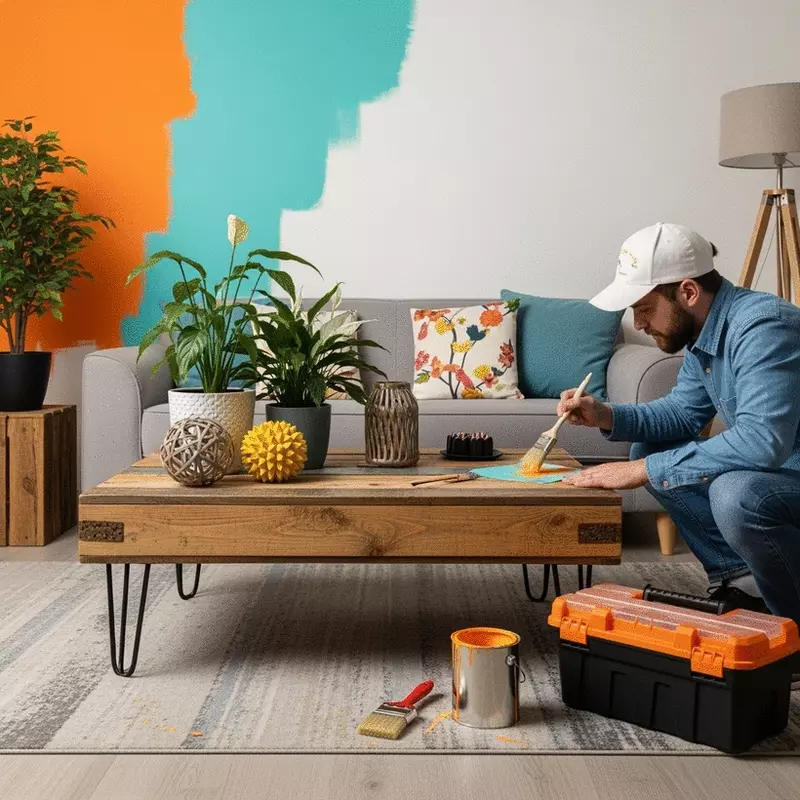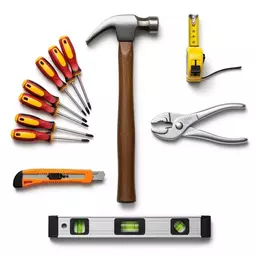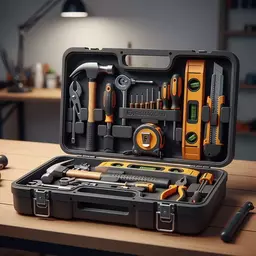Simple DIY Repair Tips
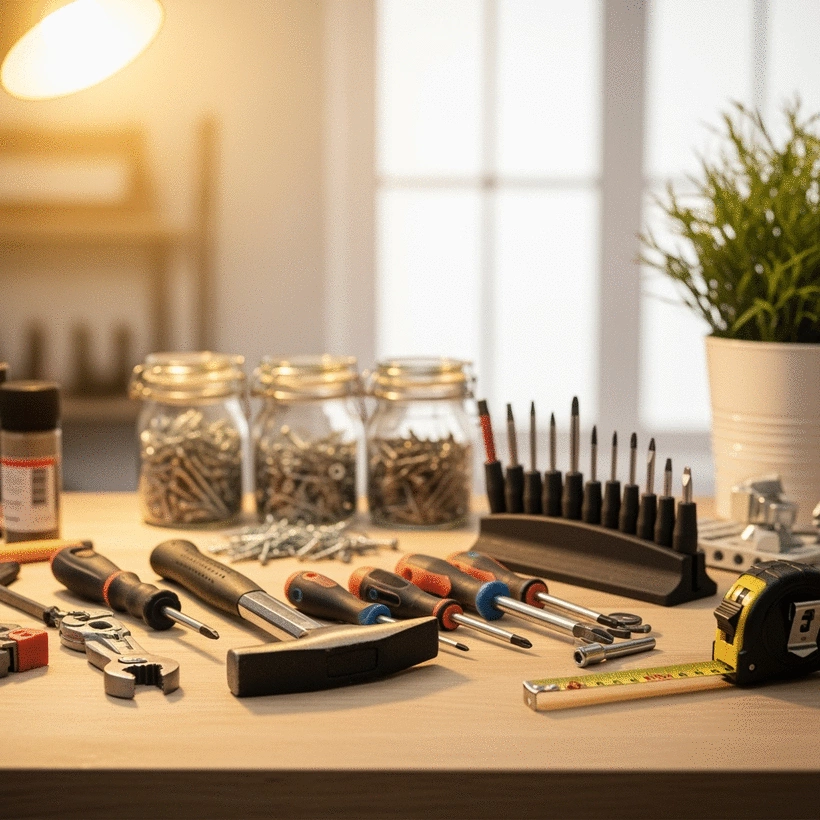
Are you ready to transform your home and save money while doing it? Embracing DIY repairs not only empowers you with new skills but also enables you to customize your space. As you embark on this exciting journey, here's what you'll learn to get you started on the right foot!
What You Will Learn
- The essential tools every DIY beginner should have, such as hammers, screwdrivers, and measuring tapes.
- How to find cost-effective alternatives to specialized tools, including the benefits of multi-tools and rental options.
- Key safety protocols and gear needed to protect yourself during DIY projects, like safety goggles and dust masks.
- Common strategies to avoid DIY injuries, emphasizing the importance of taking your time and using the right tools.
- The benefits of DIY repairs, including cost savings, skill development, and personal satisfaction.
- How to create a handy repair checklist to stay organized and focused on your DIY projects.
- Maintenance schedules that help keep your home in top shape and minimize future repair costs.
Essential DIY Repair Tools and Safety Guidelines
Understanding the tools and safety measures is crucial for successful DIY projects. Below are the essential tools and safety protocols for any DIY enthusiast.
Essential Tools
- Hammer
- Measuring Tape
- Level
- Screwdriver Set
- Wrench Set
- Pliers
Safety Guidelines
- Read instructions carefully
- Work in a well-lit area
- Keep your workspace organized
Common Injuries to Avoid
- Don’t rush your projects
- Use the right tool for each job
- Ask for help when needed
Safety Gear to Use
- Safety Goggles
- Dust Mask
- Ear Protection
- Gloves
Essential Tools and Safety Guidelines for DIY Repairs
When embarking on your DIY journey, having the right *tools* is essential for making your repairs smooth and successful. At Hardware Store Guide, I often emphasize that the quality of your tools can make a huge difference in the outcome of your projects. So, whether you're fixing a leaky faucet or assembling a new bookshelf, let’s dive into the essential DIY tools for homeowners you'll need to tackle those repairs like a pro!
Gathering the Right Tools for Easy DIY Repairs
First things first, let’s gather the basics! A well-stocked toolkit can be a game-changer for any DIY enthusiast. Here’s a list of essential tools you should have on hand:
List of Basic Tools Every Beginner Needs
- Hammer - Perfect for driving nails into wood.
- Measuring Tape - Ensures everything is measured accurately.
- Level - Keeps your shelves and pictures straight.
- Screwdrivers - A set with various sizes and types (flathead and Phillips).
- Wrench Set - Useful for tightening or loosening nuts and bolts.
- Pliers - Handy for gripping and twisting wires.
Having these tools allows you to handle most basic repairs. If you’re just starting out, focus on accumulating these essentials over time. The good news is that you don't have to break the bank!
Choosing Cost-Effective Alternatives to Specialized Tools
Sometimes, specialized tools can be quite pricey. Instead, consider looking for multi-tools or versatile tools that can perform multiple functions. For example, a good-quality adjustable wrench can replace several fixed wrenches. This not only saves money but also space in your toolbox! Here are some tips to find cost-effective alternatives:
- Check out local hardware stores for rental options.
- Buy second-hand tools from trustworthy sources.
- Look for combo kits that provide multiple tools at a lower price.
Understanding Repair Toolkits for Home Improvement
Creating a complete toolkit is not just about having tools; it's about knowing how to use them effectively. A good toolkit should be tailored to your common projects. For instance, if you plan on doing a lot of drywall repairs, include a utility knife and drywall saw in your kit. Remember, your toolkit evolves as your skills grow! Investing in quality will pay off in the long run.
Prioritizing Safety in DIY Projects
Safety should always be your top priority when tackling DIY projects. I can't stress enough how important it is to be aware of potential hazards. Before you start any project, take a moment to ensure you're prepared and protected. Here are some basic safety protocols to keep in mind:
Understanding Basic Safety Protocols for Home Repairs
- Read instructions carefully—know the tools and materials you're using.
- Work in a well-lit area to avoid accidents.
- Keep your workspace organized to minimize tripping hazards.
By following these protocols, you'll create a safer environment for yourself and your loved ones while you work on your home improvement projects.
Safety Gear: Protecting Yourself During DIY Projects
Investing in the right safety gear is just as important as having the right tools. Here’s a list of essential safety gear that you should have on hand for your DIY projects:
- Safety Goggles - Protects your eyes from debris.
- Dust Mask - Safeguards your lungs from harmful dust and particles.
- Ear Protection - Reduces noise exposure when using loud tools.
- Gloves - Protects your hands from cuts and chemicals.
Wearing this gear may seem like an extra step, but it can save you from injuries that could keep you from enjoying your DIY successes!
How to Avoid Common DIY Injuries
Accidents can happen, even to experienced DIYers. However, there are several steps you can take to avoid common injuries. Here’s how:
- Don’t rush – Take your time to avoid careless mistakes.
- Use the right tool for the job – Improvising can lead to accidents.
- Ask for help when you're unsure about a task—there's no shame in it!
By being cautious and prepared, you can enjoy all the fun of DIY projects while keeping safety in mind. At Hardware Store Guide, we're all about equipping you with the tools and knowledge you need for a successful DIY adventure!
Pro Tip
When planning your DIY project, consider documenting your process with photos or notes. This not only helps you track your progress but also provides a valuable resource for future projects or for sharing with others in the DIY community. Plus, you'll have a visual record of your hard work and achievements!
Frequently Asked Questions About DIY Repairs
- What are the essential tools for a DIY beginner?
- A DIY beginner should have a hammer, measuring tape, level, screwdriver set, wrench set, and pliers for most basic repairs.
- How can I find cost-effective alternatives to specialized tools?
- Consider looking for multi-tools, renting tools from local hardware stores, buying second-hand tools, or purchasing combo kits that offer multiple tools at a lower price.
- What are key safety guidelines for DIY projects?
- Always read instructions carefully, work in a well-lit area, and keep your workspace organized to prevent accidents.
- What safety gear should I use during DIY projects?
- Essential safety gear includes safety goggles, a dust mask, ear protection, and gloves to protect against common injuries.
- What are the benefits of engaging in DIY repairs?
- DIY repairs offer cost savings, skill development, personal satisfaction, and promote sustainability by encouraging fixing instead of replacing items.
- How can I create an effective repair checklist?
- Identify the project, list all necessary materials and tools, outline each step of the process, and set a timeline for completion.
- What are some essential home maintenance schedule tips?
- Monthly checks for smoke detectors and HVAC filters, quarterly inspections for plumbing and gutters, and annual professional inspections for major systems are recommended.
Encouragement to Start Your DIY Journey
Are you ready to dive into the world of DIY repairs? It can seem intimidating at first, but I assure you, the benefits are worth it! From saving money to developing new skills, taking on DIY projects can be rewarding and empowering. Let's explore these benefits together!
When you embrace DIY repairs, you not only save money on professional help but also adopt a sustainable approach to maintaining your home. By fixing rather than replacing items, you contribute to reducing waste, which is a win for both your wallet and the environment. Plus, you get the satisfaction of knowing you tackled a project all on your own!
Embracing the Benefits of DIY Repair
- Cost Savings: Doing it yourself can cut down repair costs significantly.
- Skill Development: You’ll gain valuable skills that can apply to future projects.
- Personal Satisfaction: There’s nothing quite like the feeling of completing a task by yourself!
- Sustainability: DIY encourages recycling and reusing materials rather than throwing them away.
Additionally, engaging in DIY projects opens up a path to creativity. You can customize your home to reflect your style, which is something that hiring a professional often doesn’t allow. So, if you’re hesitant about starting, remember that every expert was once a beginner! With a little bit of courage and the right resources, you can tackle any DIY home renovation project.
Downloadable Checklists and Visual Guides
To make your DIY journey smoother, I recommend creating handy checklists. These can help you stay organized and ensure you have everything you need before diving into a project! Here’s a simple guide to get started with your own repair checklist:
Creating a Handy Repair Checklist for Beginners
- Identify the project you want to tackle.
- List all materials and tools needed.
- Outline each step of the process.
- Set a timeline for completion.
This checklist will keep you focused and make it easier to track your progress. Plus, you can always add new items as you learn more about your home’s needs!
Essential Maintenance Schedules for Homeowners
- Monthly: Check smoke detectors and change HVAC filters.
- Quarterly: Inspect plumbing for leaks and clean gutters.
- Annually: Schedule a professional inspection of major systems.
- Seasonal: Prepare your home for winter/summer by checking insulation and air conditioning.
By following a maintenance schedule, you’ll keep your home in top shape and minimize future repair costs. Plus, you won’t feel overwhelmed when it’s time to tackle those tasks!
Additional Questions About DIY Repairs
What Are the Most Common DIY Projects for Beginners?
Many beginners start with simple projects like painting, patching drywall, or even assembling furniture. These tasks will help you get comfortable with tools and repairs. Don’t be afraid to jump in and start small!
How Can I Learn More About DIY Repairs Quickly?
Online resources, such as tutorial websites and YouTube channels dedicated to DIY, are fantastic tools. Hardware Store Guide also offers insightful articles that cover various home repair topics, making it easier for you to learn at your own pace!
What Are the Best Resources for Home Maintenance Tips?
Reputable DIY websites, community forums, and even local workshops can provide a wealth of knowledge. Don't hesitate to reach out to experienced DIYers or join groups where you can share and gain insights. Remember, the DIY community is all about sharing experiences and knowledge!
Final Thoughts and Actionable Next Steps
As you embark on your DIY journey, remember that learning is a continuous process. Don't rush through projects; take your time and enjoy the process of creating and fixing. I believe in your abilities to transform your home into a space that reflects your style and meets your needs!
Encouraging Continued Learning and Experimentation
It’s perfectly normal to face challenges along the way. Each mistake is an opportunity to learn and grow! Keep experimenting with new projects, and don’t shy away from asking for help when needed.
Invitation to Share Your Success Stories and Experiences
I would love to hear about your DIY successes! Sharing your journey not only boosts your confidence but can inspire fellow DIY enthusiasts as well. So, let’s connect! Share your projects, tips, and triumphs with me, and together we can build a vibrant DIY community!
Recap of Key Points
Here is a quick recap of the important points discussed in the article:
- Essential Tools: A well-stocked toolkit should include a hammer, measuring tape, level, screwdrivers, wrench set, and pliers to handle most basic repairs.
- Cost-Effective Alternatives: Look for multi-tools, rental options, second-hand tools, and combo kits to save money and space. For more on maximizing your tools, check out our guide on essential power tools for DIY.
- Safety First: Always prioritize safety by reading instructions, working in a well-lit area, and keeping your workspace organized.
- Invest in Safety Gear: Equip yourself with safety goggles, dust masks, ear protection, and gloves to protect against injuries.
- Common DIY Injuries: Avoid rushing, use the right tools, and don't hesitate to ask for help when needed.
- Maintenance Schedules: Regularly check smoke detectors, inspect plumbing, and prepare your home for seasonal changes to minimize repair costs.
- Continued Learning: Embrace mistakes as learning opportunities and connect with the DIY community to share experiences and gain insights. For creative solutions, explore some DIY ideas for small spaces.
